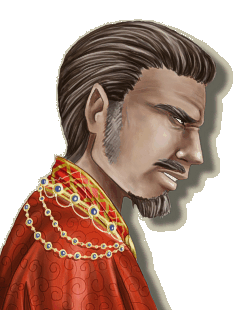|
Half-Elves: From Outsiders to Heroes
Half-Elves and Their Families
<<
PREVIOUS • History
of Half-Elves • NEXT
>>
 The
familial situations facing half-elves tend to be unique. Due
to the low fertility rate of elves and their vastly expanded
life compared to humans, it is unusual for half-elves to have
siblings of their same generation and rare to have any full
siblings. Though many may end up with half-brothers or sisters,
they are often born decades or even centuries apart. The
familial situations facing half-elves tend to be unique. Due
to the low fertility rate of elves and their vastly expanded
life compared to humans, it is unusual for half-elves to have
siblings of their same generation and rare to have any full
siblings. Though many may end up with half-brothers or sisters,
they are often born decades or even centuries apart.
There appears to be no overall pattern to the race of the
parents. The mother is just as likely to be human as she is
to be elven. Some of this has varied based on geography and
historical period, but through time, it has never been demonstrated
that humans or elves are more likely to rape nor that attraction
between the races has a gender bias.
Half-elves almost never inherit family-held titles or fortunes,
as they generally are not officially recognized by the societies
in which they are raised. In this respect, they are more akin
to the bastard children of the nobility and the wealthy. They
are sometimes provided for and other times disowned. This
is true within both the human and elven cultures, though it
can vary somewhat by locale.
There is no model family that contains half-elven offspring.
Many half-elves are the products of brutality in the form
of rape or coercion. In such cases, if the child is not put
to death at birth, it might be raised by the birth mother,
but more often, the child is abandoned or given to others
to raise. Some half-elves are not only born to parents of
different races, but also parents of different social stations,
such as a landowner and a servant. Children born of such circumstances
are usually not desirable in any case, and being a half-blood
makes it worse. Even those children born to a loving mixed-race
couple are often unwanted as they can make a difficult situation
even more precarious.
A few half-elves are lucky enough to be born to a bonded
couple that actually desires children. In some ways, such
a family is little different from any other. But they face
peculiar problems not seen in a single-race family. The child
of the couple will be barely reaching emotional maturity at
the time the human parent is in their dotage or already passed
on. The elven parent is usually still in his or her youth
or prime of life when having to deal with an elderly human
spouse, creating uncommon pressures on the family. The child
usually has problems feeling understood by his or her parents
because the parents are unable to comprehend what it is like
being born into two worlds. Most of all, even a child born
to a loving couple in a more tolerant town will still be inescapably
aware that his or her very existence is a taboo.
The children of half-elves usually strongly resemble their
full-blooded parent in regards to racial features and physiology.
Genetically speaking, the existence of hybrids seems to be
extremely fleeting, with the dominant race quickly overpowering
the other. For instance, the child of a half-elf and an elf
will usually retain few notable human characteristics and
in most cases can pass for full elven.
This means that half-elves are often in awkward situations
when trying to create families with a human mate. The half-elf
choosing a human as a mate or spouse will almost always outlive
the human. They will also most likely outlive their children,
grandchildren, and so on, if human continues to be the dominant
race in those generations.
Because half-elves are uncommon, it is rare for a half-elf
to find another half-elf as his or her bondmate. In those
instances, their children typically continue to exhibit the
features of both races and are usually labeled as half-elven
also. It is possible that a child of two half-elves will appear
to be mostly human or mostly elven, just as a first-generation
half-elf may more strongly favor one race over the other.
"Throw backs" are also seen on rare occasions, where
a child who may only be 1/16 elven actually appears to be
half-elven or even, to some less discerning eyes, full elven.
|



 The
familial situations facing half-elves tend to be unique. Due
to the low fertility rate of elves and their vastly expanded
life compared to humans, it is unusual for half-elves to have
siblings of their same generation and rare to have any full
siblings. Though many may end up with half-brothers or sisters,
they are often born decades or even centuries apart.
The
familial situations facing half-elves tend to be unique. Due
to the low fertility rate of elves and their vastly expanded
life compared to humans, it is unusual for half-elves to have
siblings of their same generation and rare to have any full
siblings. Though many may end up with half-brothers or sisters,
they are often born decades or even centuries apart.